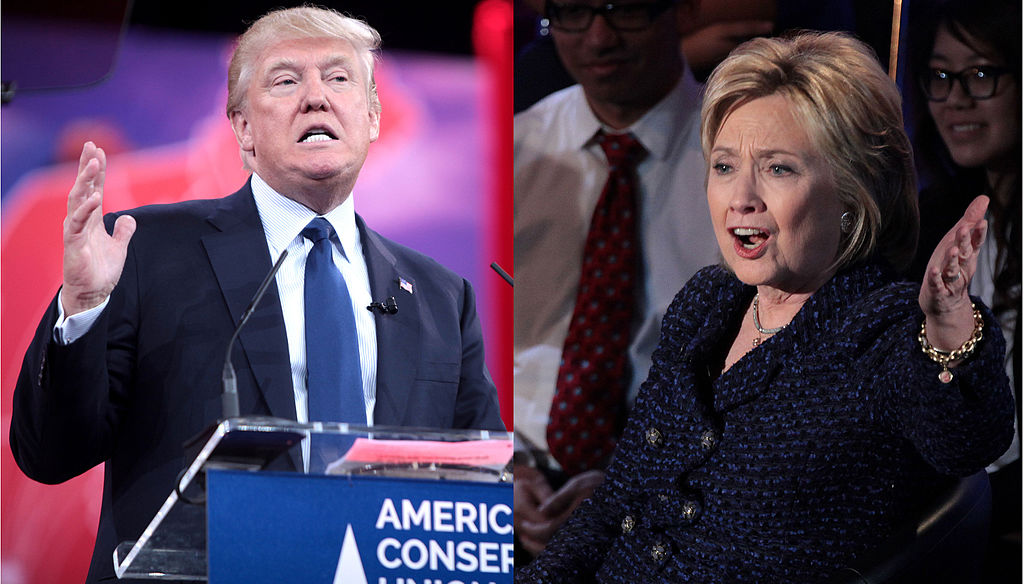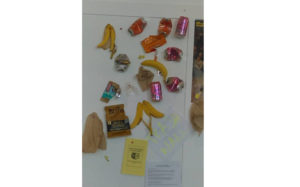Last night, the first of three presidential debates between Donald Trump and Hillary Clinton was held at Hofstra University. The two candidates argued over trade and economic policy, the war in Iraq and with ISIS, Trump’s refusal to release his tax returns, Clinton’s use of a private email server, and finally race relations in the US.
What started out as a somewhat polite debate quickly became abrasive, primarily because of Trump’s constant interruptions of Clinton and overriding of moderator Lester Holt. After laying out traditional Democratic and Republican tax plans, both began with relatively polite attacks, Clinton emphasized the different positions in life from which they started. Clinton talked about how her father was a small businessman while Trump started his business with a “14 million dollar” loan from his father a New York real estate developer. Trump responded asking how after 30 years “why are you just [now] thinking about these ideas?”
When the conversation turned to the topic of trade, Trump had his best moments of the night attacking Clinton for her position change on the Trans-Pacific Partnership. Trump’s shout out “you called it [TPP] the gold standard” was the beginning of many interruptions and one of Trump’s few accurate intrusions. Ironically it was this Trump comment that Clinton chose to respond to by commenting that Trump “[lives] in his own reality, but that is not the facts.
Trade expanded to taxes and Clinton attacked Trump for not releasing his tax returns. Trump responded that he was under audit and thus could not release them.
The moderator, Lester Holt, pressed Trump pointing out that the IRS said he can release his returns under audit.
Trump said that his lawyers did not want him to release his returns. He added that if Clinton “releases her 33,000 e-mails that have been deleted” he would release his tax returns.
Clinton, refusing to let Trump change the subject returned to Trump’s taxes. “The only years anybody’s ever seen… he didn’t pay any federal income taxes.”
Trump responded, “that made me smart.”
Holt turned topic turned to race relations, directing his question to Clinton, he asked if she believed that police were implicitly biased against black people. Clinton responded that “implicit bias is a problem for everyone, not just police,” yet she said it was important that federal funds were dedicated to training police against implicit bias.
Trump argued that more “law and order” was necessary, calling for a reinstitution and expansion of stop and frisk. He argued stop and frisk had lowered the murder rate in New York from “2200 to 500.” When pushed by Lester Holt on the unconstitutional ruling on stop and frisk Trump responded that the judge who ruled against it “was a very against-police judge,” and the decision should have been appealed by Mayor Bill de Blasio.
Clinton responded pointed that even the end of stop and frisk, “crime has continued to drop, including murders.”
On the issue of birtherism, Trump said that he was very proud of getting Obama to reveal his birth certificate. When Lester Holt pushed Trump on that issue, Holt pointed out that Obama had released his birth certificate in 2011 and yet Trump had continued to hustle the issue until 2015, Trump again asserted, “I got him to produce his birth certificate and I think I did a good job.” He did not answer why he had continued making the claim of birtherism until 2015. Trump maintained then interjected that Clinton’s 2008 campaign had started the issue. Trump said that former Clinton campaign manager Sidney Blumenthal had instigated the issue, referring to an email Blumenthal had sent within the campaign advocating to paint Obama as an outsider.
Clinton dismissed the claim she had anything to do with initiating the birtherism charge, and continued to attack Trump for this “racist birther lie.”
At Holt’s insistence, the debate then turned to the topic of foreign policy, where Trump argued that entering Iraq was wrong and that leaving Iraq without leaving troops there was wrong as well and that this “created a vacuum… and ISIS was formed.”
Clinton pushed back that Trump was for the war in Iraq (in an interview with Howard Stern in 2002 Trump said he supported the war) but that it was not possible to stay in Iraq because “Bush made the agreement about when the American troops would leave” adding that “the only way that American troops could have stayed in Iraq is to get an agreement from the then-Iraqi government that would have protected our troops, and the Iraqi government would not give that.”
Lester Holt then asked about Trump’s comment that Hillary Clinton doesn’t have “the presidential look.” Trump argued that he didn’t think she had “the stamina” to be president, not addressing his comment on her “presidential look.”
Clinton responded in possibly her strongest moment of the night, “as soon as he travels to 112 countries and negotiates a peace deal, a cease-fire, a release of dissidents, an opening of new opportunities in nations around the world, or even spends 11 hours testifying in front of a congressional committee, he can talk to me about stamina.”
Trump pushed back saying, “Hillary has experience, but it’s bad experience.”
All in all after a chaotic night, most factors appeared to show Clinton winning the debate. Betting Markets, which have historically predicted elections fairly well, went from 62.3% for Clinton to 68.7%. Post-debate polls from CNN showed 62% of people thought Clinton won the debate while on 27% believed Trump did. Public Policy Polling had a more moderate 51/40 lead for Clinton in their post-debate polls. Yet, these polls are historically imperfect, and do not tell us yet how much actual presidential election polls will change. An average of the last four elections shows the first debate has moved the polls about 3.4 points. Those polls until election day polls have a average net change of only 1.2 points from the last four elections. What this means, is that whatever the polls say later this week, could very likely be how the election turns out.







